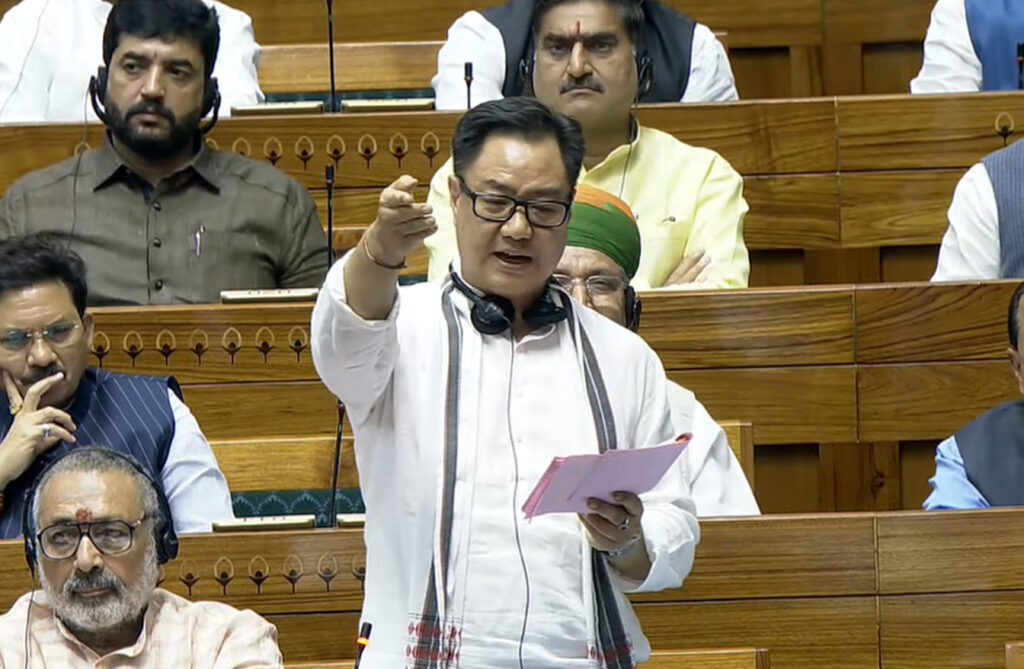
Introduction
The Waqf Amendment Bill 2025, recently introduced in the Lok Sabha, has become the center of heated political and legal debate. One of its most controversial aspects is the proposed removal of Section 40 of the Waqf Act, 1995 — a provision that gives the Waqf Board critical authority to identify and declare properties as Waqf.
While the government claims that the Waqf Amendment Bill 2025 aims to bring transparency and efficiency, critics argue that it could seriously undermine the independence and authority of the Waqf Board.
🧾 What is Waqf and Why Is It Important?
To understand the implications of the Waqf Amendment Bill 2025, we need to grasp the concept of Waqf. In Islamic tradition, a waqf refers to a permanent dedication of property or assets for religious or charitable purposes. In India, these properties are often used to support mosques, educational institutions, orphanages, and other welfare services.
The Waqf Board, created under the Waqf Act of 1995, is responsible for managing these properties and ensuring their proper use according to the donors’ intent. The Board’s authority, especially under Section 40, is crucial for identifying Waqf properties and protecting them from mismanagement or encroachment.
📜 The Role of Section 40 in the Waqf Act
One of the main talking points of the Waqf Amendment Bill 2025 is the removal of Section 40, which currently provides the Waqf Board with the authority to decide whether a property is Waqf or not.
What Does Section 40 Allow the Board to Do?
- Initiate Investigations: If the Board suspects a property might be Waqf, it can gather evidence and conduct inquiries.
- Make Final Determinations: The Board’s decision is legally binding and cannot be overturned by executive authorities.
- Review Non-Waqf Registrations: If a property is registered under another trust but appears to be Waqf, the Board can ask for re-registration or justification.
- Limited Appeal Scope: Only the Waqf Tribunal can overturn the Board’s decision, maintaining judicial oversight while preserving Board autonomy.
This section ensures that the Waqf Board can function independently of external interference, including political or bureaucratic influence.
⚖️ Why the Government Wants to Remove Section 40
According to the Centre, the Waqf Amendment Bill 2025 will improve transparency and administrative efficiency by eliminating bureaucratic bottlenecks. Officials argue that Section 40 gives too much unilateral power to the Waqf Board, which could delay property disputes and block development projects.
The government believes that removing Section 40 will:
- Streamline property governance,
- Reduce legal ambiguities,
- Prevent misuse of power,
- And improve the utilization of Waqf properties for the community’s benefit.
❗Criticism of the Waqf Amendment Bill 2025
Despite the government’s rationale, the Waqf Amendment Bill 2025 has faced strong opposition. Legal experts, minority leaders, and various political parties argue that the removal of Section 40 will weaken the Waqf Board and jeopardize the very assets it is supposed to protect.
Key Concerns:
- Loss of Autonomy: Without Section 40, the Board can’t independently declare a property as Waqf, making it reliant on other authorities.
- Increased Risk of Encroachment: Properties without clear Waqf classification could be sold, repurposed, or encroached upon.
- Legal Uncertainty: Ambiguity over property status could lead to lengthy and expensive legal disputes.
- Violation of Religious Rights: Since Waqf is a religious institution, critics argue that undermining the Board’s powers infringes on the religious freedoms of India’s Muslim community.
The removal of Section 40, in their view, transfers power from an independent statutory body to potentially biased administrative officers.
🏛️ Historical Context: Why Section 40 Was Added
Section 40 was designed to give the Waqf Board a strong legal footing in identifying and protecting Waqf properties. Before this provision, there were several instances of illegal occupation and sale of Waqf land, primarily due to lack of clarity and administrative neglect.
By empowering the Waqf Board with quasi-judicial powers, Section 40 aimed to:
- Secure religious endowments,
- Prevent fraudulent transfers,
- And provide swift resolution of disputes.
Removing it now through the Waqf Amendment Bill 2025 threatens to reverse these gains.
🔍 What’s at Stake?
The impact of the Waqf Amendment Bill 2025 goes beyond technical amendments—it touches on legal, religious, and community concerns.
If Section 40 is removed:
- Thousands of Waqf properties worth billions may become legally ambiguous.
- The Waqf Board may no longer be able to act independently.
- Court cases over property rights may skyrocket.
- It may set a precedent for weakening other minority institutions.
Supporters of the amendment say it will modernize outdated laws. But critics say this change could open the floodgates for property misuse and political interference.
🔧 Alternatives to Repealing Section 40
Instead of removing Section 40, experts suggest reforming and strengthening it. Some ideas include:
- Digitization: Create a central digital record of all Waqf properties.
- Audit Mechanisms: Conduct regular audits to prevent corruption.
- Capacity Building: Train Waqf officials in legal and administrative matters.
- Legal Reforms: Improve the functioning of Waqf Tribunals and make them more accessible.
Such steps would maintain the spirit of Waqf while improving transparency and governance.
🧭 Conclusion
The Waqf Amendment Bill 2025 has opened up an important debate on how to balance administrative reform with the preservation of religious and community rights. While streamlining property laws is a welcome move, critics argue that removing Section 40 could disempower the very institutions meant to protect Waqf endowments.
Rather than weakening the Waqf Board, the goal should be to make it more effective, accountable, and transparent — without stripping it of its core powers.
The future of thousands of properties, and the legacy of a centuries-old tradition, may well depend on the direction this debate takes.
you are in reality a good webmaster The website loading velocity is amazing It sort of feels that youre doing any distinctive trick Also The contents are masterwork you have done a fantastic job in this topic